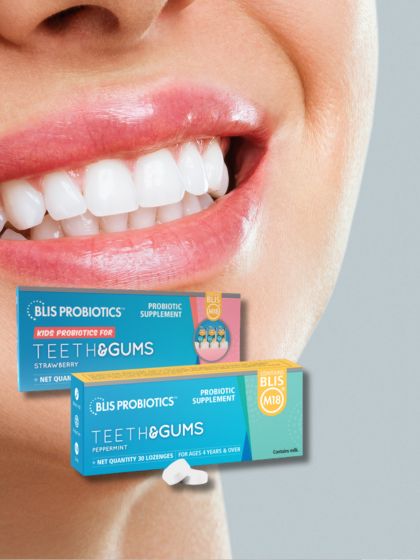Key Takeaways:
- Probiotics are beneficial live microorganisms vital for a balanced gut microbiome and overall health.
- They work by crowding out harmful bacteria, enhancing nutrient absorption, and bolstering the gut-immune axis.
- Specific probiotic strains offer targeted benefits, from digestive comfort to immune fortification.
- Supplements provide a potent way to ensure consistent probiotic intake for optimal gut and systemic wellbeing.
Few wellness topics gain as much attention as gut health. Often called our "second brain," a healthy gut deeply links to mood, metabolism, and our immune system. Probiotics frequently enter this conversation as a natural solution. But can these tiny microorganisms truly deliver on the promise of better gut health?
The simple answer, supported by growing scientific research, is yes. Probiotics are live, beneficial bacteria and yeasts that, when taken adequately, offer health benefits. They are the friendly residents of your gut, tirelessly working to maintain a delicate bacterial balance essential for optimal bodily functions.
Are Probiotics Good for Gut Health?
Absolutely. Your gut microbiome hosts trillions of microbes. When balanced, it supports digestive efficiency, optimal nutrient absorption, and a robust immune response. However, chronic stress, poor diet, toxins, and especially antibiotics, can severely disrupt this balance, leading to harmful bacteria overgrowth.
This is where probiotics step in to replenish and rebalance gut flora by actively competing with undesirable microbes for space and nutrients. This "crowding out" effect is vital for restoring harmony and supporting essential gut functions. A healthy gut lining acts as a crucial barrier, preventing unwanted substances from entering the bloodstream. Beyond supporting digestion, the gut is a major hub for immune cells, meaning a healthy gut directly translates to a stronger immune system, helping prevent frequent infections and chronic tiredness. For more advice on managing gut imbalances, explore tips to starve bad gut bacteria.
How Do Probiotics Work in the Gut?
Probiotics are active workers within your digestive tract, exerting their benefits through several key mechanisms:
- Competitive Exclusion: They directly compete with harmful bacteria for adhesion sites on the intestinal wall and available nutrients, effectively explaining how probiotics work in the gut by limiting pathogen growth.
- Beneficial Substances: Many probiotic strains produce short-chain fatty acids (SCFAs), like butyrate, which fuel gut cells and possess anti-inflammatory properties. They also create antimicrobial compounds.
- Immune Modulation: Probiotics interact with immune cells in the gut's lymphoid tissue (GALT), helping train and regulate immune responses, reducing inflammation, and boosting the body's ability to fight invaders.
- Enhanced Barrier Function: They contribute to strengthening the gut lining, making it less permeable and preventing "leaky gut."
- Nutrient Absorption and Synthesis: Certain strains aid nutrient digestion and absorption, and can even synthesize vital vitamins, including various B vitamins and Vitamin K. Discover more about how vitamins improve gut flora.
What Probiotics Are Good for Gut Health?
Probiotic effectiveness depends on the specific strain and your health goal. Not all are equal, and what probiotics are good for gut health depends on your individual needs. When choosing a probiotic, look for products that:
- Contain diverse strains: Multi-strain formulas often offer broader benefits. Well-researched strains commonly include Lactobacillus acidophilus and Bifidobacterium lactis, known for broad digestive and immune support.
- Have a high CFU count: This indicates the number of live organisms per dose, ensuring enough to make it alive to your gut.
- Are shelf-stable: Some strains are robust enough not to require refrigeration, making them convenient.
- Are backed by science: Reputable brands invest in thorough research and clinical trials to prove efficacy.
While many probiotics focus solely on the gut, true holistic health often begins earlier in the body – in the mouth and throat. The mouth and throat are truly the "gateway to the body" and your first line of defence. Supporting this initial barrier with targeted immune health probiotics can profoundly benefit gut health by reducing the pathogen load entering your digestive system. For instance, some of BLIS Probiotics® leading oral health products are derived from the oral strain - Streptococcus salivarius or BLIS K12®. ULTRABLIS® contains BLIS K12®, and is designed to directly crowd out harmful bacteria where they enter at the mouth and throat. Plus, it includes two beneficial gut strains (Lactobacillus acidophilus La-14™ and Bifidobacterium lactis HN019™).
When to Take Probiotics for Gut Health?
The timing of probiotic intake can be important. To help probiotics survive stomach acid and reach the intestines alive, experts often suggest:
- On an Empty Stomach: Taking probiotics 15-30 minutes before a meal can help them pass through the stomach quickly when acid levels are lower, minimizing exposure.
- With a Light Meal: Some probiotics are formulated to be taken with food, as a light meal can buffer stomach acid. Always check the product label for specific instructions.
Consistency matters most. Incorporating probiotics into your daily routine, whether through fermented foods or high-quality supplements, is key for long-term benefits. If you're hoping for probiotics for energy or overall vitality, regular and consistent intake is essential to maintain a beneficial gut balance.
The Bottom Line:
Probiotics are fundamental for maintaining digestive health, supporting immune function, and contributing to overall well being. By understanding how they work, which types to seek, and when to take probiotics for gut health, you empower your gut to function at its best - creating a healthier you. To explore how a proactive approach to your oral microbiome can support your entire systemic wellbeing, consider BLIS Probiotics® specialised range.







